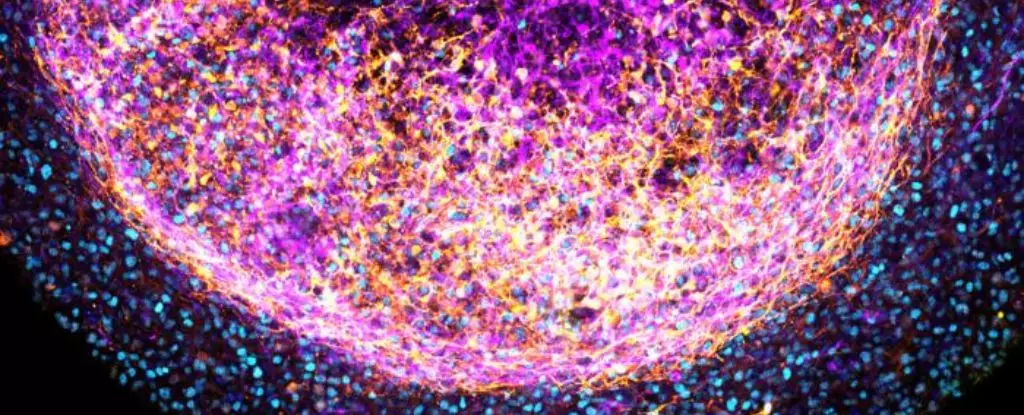Researchers in the Netherlands have made an important breakthrough in brain organoid research by developing a brain organoid directly from fetal brain tissue. This innovative approach bypasses the challenging process of coaxing stem cells to multiply and differentiate into various cell types, such as neurons. While the brain organoid is not a real organ and lacks consciousness, it holds immense potential as a model for studying and treating brain diseases and disorders, especially in children.
The Limitations of Fetal Brain Tissue
Traditionally, fetal brain tissue has been obtained from elective abortions, and its utilization in scientific research varies across different nations due to ethical considerations. Some countries completely prohibit its use, while others like the Netherlands allow it under strict limitations. The availability of fetal tissue is also limited, prompting scientists to explore alternative methods such as growing mini-brains from stem cells.
An Exciting Breakthrough
In the Netherlands, researchers at the Princess Máxima Center for pediatric oncology and the Hubrecht Institute successfully developed brain organoids using small fragments of fetal brain tissue. These organoids self-organized in a dish, forming a three-dimensional, layered structure consisting of various cell types, including neurons and radial glia. The presence of radial glia, which are unique to humans and not found in rodent models, is particularly noteworthy. The brain organoid displayed responses to chemical signals similar to those of a living brain and remained viable for over six months, surpassing the lifespan of organoids derived from stem cells.
The brain organoid developed by Clevers and his colleagues is a valuable tool for understanding the regulation of cell identity during brain development. Additionally, the team was able to genetically manipulate the organoids to resemble cancerous tumors, enabling them to test potential drugs for treating brain cancer. The success of this study may be attributed to the proteins produced by brain tissue, which facilitate the self-organization of brain cells into a complex three-dimensional structure.
The breakthrough in brain organoid research holds promise for advancing our understanding of brain diseases and disorders. By employing brain organoids derived from fetal tissue, researchers can study the progression and underlying mechanisms of various neurological conditions. This model provides a unique opportunity to develop targeted treatments for specific brain diseases, especially those affecting children.
Addressing Ethical Concerns
The utilization of fetal brain tissue in research raises ethical questions that must be carefully considered. While some countries outlaw its use entirely, others, like the Netherlands, have implemented strict limitations to ensure ethical guidelines are followed. It is crucial that researchers and bioethicists work closely together to establish responsible methodologies and practices.
The breakthrough achieved by Dutch researchers opens up new avenues for brain organoid research. By developing organoids directly from fetal brain tissue, scientists can unlock greater insights into brain development, diseases, and potential treatment options. This technology has the potential to revolutionize our understanding of the human brain and improve the lives of individuals affected by brain disorders.
The development of brain organoids from fetal brain tissue represents a significant breakthrough in the field of neuroscience. This innovative approach bypasses the challenges associated with stem cell-derived organoids and allows for the creation of a more native and fixed developmental state. It is an exciting development that has the potential to transform our understanding and treatment of brain diseases and disorders. However, it is important to address the ethical concerns associated with the use of fetal tissue in research and ensure that responsible practices are followed. The future of brain organoid research holds immense promise, and further advancements in this field will undoubtedly contribute to advancements in neuroscience and medicine.


Leave a Reply